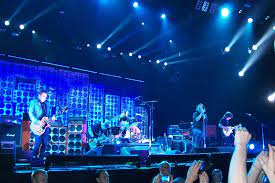It is normal to daydream about your first gig. Stadiums. Spotlights. Exotic strangers are begging for a second chance. Champagne-shaking promoter giving over a suitcase full of the fifties. Although we hate to put a pin in that thought bubble – live debuts are not always easy. With a little preparation, you can avoid empty venues, lost gear, and withheld payments of legend. These 12 tips will help you avoid stepping on stage.
#1. Begin with friends
if you want to participate in the local live music scene. Begin by attending gigs and becoming friends with the emerging bands. Find the venue that hosts the most upcoming bands of your genre, and then pay the promoter for pints. Although your bar tab will not look great, you’ll get paid in contacts.
#2. Do a stakeout
Do your research before you accept your first gig. To see a band in action, visit the venue before you go and ask any pertinent questions. What size is the stage? Is the soundman able to get a good mix? Does the PA work well? What volume can you play? Is there parking? Are you going to be killed by bikers using pool cues?
“Find the best venue for your genre’s upcoming bands, and then give the promoter a few …” pints.
#3. Agree to the fee
You don’t need to worry about the suitcase of fifties that we mentioned earlier. But, do make sure you agree on the terms and conditions upfront. You will be charged a flat fee or a percentage of the event’s total. Or, is the venue operating a pay-to-play policy that allows you to have exposure instead of hard cash? The Musicians Union has a Fair Play Guide to help you negotiate terms.
#4. Reduce the fat
Your first gig as an unknown quantity will likely involve supporting a band with more experienced musicians. Ask the venue when you expect you to play, and then use a stopwatch to track your setlist. You can always cut it down to your most popular songs and take the drum solo.
#5. Cover yourself
We all know that insurance is the antithesis to rock ‘n roll’s rebel spirit. Consider this: If you don’t have public liability insurance, your claim will be denied if you cause injury to someone’s health by hitting their head with your guitar headstock. You can get annual policies starting at PS50, and credible venues won’t allow you to perform without it.
#6. Play a ‘soft’ debut
Although nobody expects you will be a pro at everything, a bad first gig can ruin your local reputation. Do a dry run at a friend’s birthday, house party or Bar Mitzvah before you go to play for the public. You’ll still be suck, but it won’t go on permanent record.
#7. Ask about backline
House equipment is usually required for venues that host live music. This includes a PA, drumkit, guitar cabinets, and sometimes cymbals. You should check in advance what equipment you will need for the event. Also, consider sharing the space with other bands. If you are a fussy person, keep in mind that much of the equipment in the venue has been around since the beginning of time.
#8. Make a list
Make a list and check off each item you pack for your first gig. While you’ll be able to remember your guitar, amp, and pedalboard, don’t forget the essentials like batteries, leads and strings. Be kind to other musicians, as they may not be able to help you if your amp spontaneously explodes.
#9. Prepare to plug
This is not just a gig. It’s also an opportunity to sell your goods and get your name out. You can put your brand logo on the kick drum and bring merchandise for sale. Also, remember to bring a clipboard and a pen to collect names for your mailing lists.
“Make no mistake: The soundman dictates whether your sound is like towering rock gods …” or muffled pipsqueaks
#10. Build the buzz
It is not healthy for bands to depend on their friends to fill the venue. You will need to attract paying punters to avoid feeling like a ghostship at your first gig. Get a website presence if you don’t already have one. As the time ticks down until your debut on stage, keep the momentum going with regular blogs, photos, and teasers that make fans feel involved (e.g. Ask them to vote for the cover you’ll be playing.
#11. Spoil the soundman
It would be best if you arrived in time to soundcheck. Then, make friends with the soundman and tell them what you would like from the mix. The man wearing the Dream Theater tee shirt and the beard will decide whether you sound like rock stars or muffled pipsqueaks. A pint of beer and a pack of pork scratchings can help him get inside.
#12. Record yourself
It’s difficult to see the good and bad parts of the heat. It’s hard work, and it can be painful. However, if you record your performance at the desk, it will allow you to objectively evaluate which songs lead to a circle pit or a stampede towards the bar. You can also set up a video camera to see if the decision to wear loincloths was a wise one.

